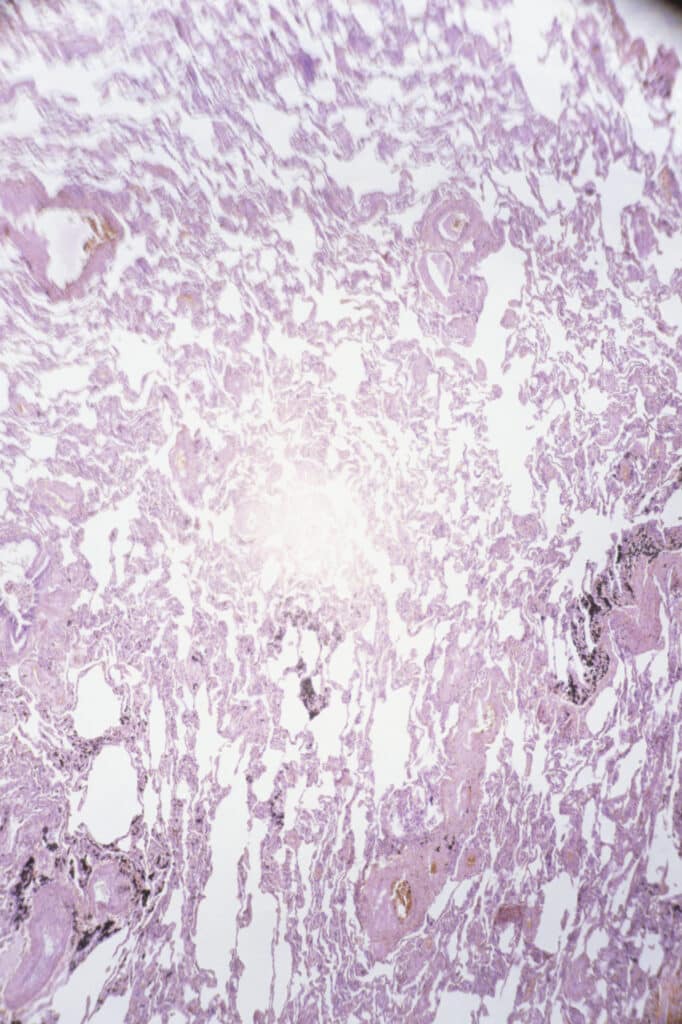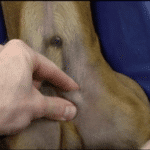The Arndt Small Animal Center is a very good facility for oncology for pets in southwest Germany.
The Arndt Small Animal Center is a renowned veterinary practice in Karlsruhe that specializes, among other things, in the treatment and diagnosis of cancer in animals. The small animal center offers comprehensive oncological diagnostics and therapy for sick animals. Here you will find some information about the various specialist areas of oncological diagnostics offered at the Arndt Small Animal Center:

Diagnostics in the field of oncology
Imaging procedures in the field of oncology:
At the Arndt Small Animal Center, modern imaging techniques such as X-rays, ultrasound and computer tomography (CT) are used to precisely locate tumors and metastases in the animal's body and to assess their extent.
Cytology in the field of oncology :
A fine-needle aspiration or biopsy can be used to remove cells from suspicious tissues or organs and examine them under a microscope. Cytological examination makes it possible to determine the type of tumor as well as its degree of aggressiveness.
Histopathology:
At the Arndt Small Animal Center, tissue samples are taken from tumors and their surroundings and examined histopathologically together with internationally renowned experts. This analysis enables a more precise assessment of the tumor type, spread and possible treatment options.
Laboratory diagnostics:
Blood and urine samples are analyzed to assess the animal's overall health and identify possible systemic consequences of the cancer. Special blood markers can provide information about certain types of tumors and help monitor the effectiveness of therapy.
Staging in the field of oncology :
To determine the stage of the cancer and the extent of metastasis, various diagnostic procedures such as imaging procedures and laboratory tests are combined. Staging is important to select the most appropriate therapy for the affected animal and to provide a prognosis.
At the Arndt Small Animal Center, highly qualified veterinarians such as veterinarian GPCert Oncology Catherine Grötz-Stergiou, veterinarian Anna Daum and veterinarian Sheila Martins and specialist staff work hand in hand to ensure the best possible diagnostics and therapy for your sick animal. The well-being and quality of life of the animal are always in the foreground.
The Arndt Small Animal Center not only offers modern diagnostic procedures , but also comprehensive oncological therapy for affected animals.
Some of the therapy options offered are:
Surgery:
In many cases, surgical removal of the tumor is the preferred treatment method. The veterinarians at the small animal center have extensive experience in oncological surgery and carry out corresponding procedures using the latest scientific findings and techniques.
Chemotherapy:
Chemotherapy is a systemic therapy that uses drugs to inhibit or reduce tumor growth. At the Arndt Small Animal Center, chemotherapy is tailored individually to the sick animal in order to achieve the best possible effect with minimal side effects.
Supportive therapy:
Supportive therapies play an important role in the treatment of cancer patients. These include pain therapy, nutritional advice and supportive medication to maintain or improve the animal's quality of life during and after treatment.
Pet Oncology FAQs:
What is meant by oncological disease in pets?
Oncological disease is a disease caused by the uncontrolled proliferation of cells in the animal's body. These cells can be benign or malignant and can reside in various organs and tissues in the body.
What types of oncological diseases are there in pets?
There are many different types of oncological diseases in pets, including cancers of the blood, bones, skin, gastrointestinal tract, mammary glands and many more.
How do I know if my pet has an oncological disease?
There are many different types of oncological diseases in pets, including cancers of the blood, bones, skin, gastrointestinal tract, mammary glands and many more.
How is oncological disease diagnosed in pets?
Diagnosis of an oncological disease requires a thorough examination by a veterinarian or an oncology specialist. This may include conducting blood tests, imaging tests such as X-rays or ultrasounds, and taking tissue samples.
How is oncological disease treated in pets?
Treatment of oncological disease depends on the type and stage of the disease. A combination of surgery, radiation therapy, and chemotherapy may be used to stop or slow the growth of the cancer cells.
What are the chances of success when treating oncological disease in pets?
The chances of success in treating an oncological disease depend on many factors, including the type and stage of the disease, as well as the general health of the animal. However, early diagnosis and treatment can help improve the animal's survival time and quality of life.
How can I protect my pet from oncological diseases?
Although there is no guarantee that a pet can be protected from oncological diseases, there are certain measures that can help minimize the risk. This includes a healthy diet, regular exercise and check-ups at the vet.
In summary:
The Arndt Small Animal Center attaches great importance to individual care for animals and owners. The small animal center offers comprehensive advice and information about the various therapy options and accompanies pet owners and their animals sensitively through the entire treatment process.
The aim of the Arndt Small Animal Center is to extend the lives of animals with cancer and to maintain or improve their quality of life as best as possible.
Non-binding inquiry
You can use the following form to submit a non-binding consultation request - the more information you give us, the better one of our specialized veterinarians can prepare for our call back to you:






